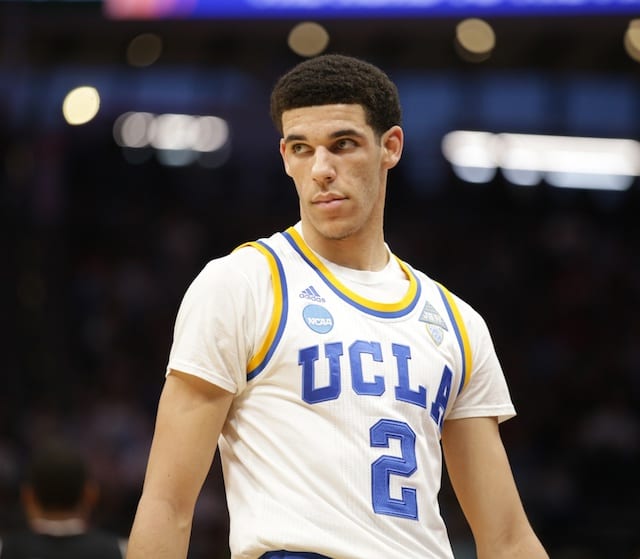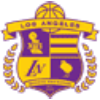Two years ago, the Los Angeles Lakers surprised almost everyone when they selected D’Angelo Russell with the number two pick in the NBA draft. The front office used this valuable selection on a point guard, even though the incumbent at that position, Jordan Clarkson, had just been awarded first team All-Rookie honors – the first Laker rookie so honored since Eddie Jones in 1995.
When asked for an explanation, General Manager Mitch Kupchak explained that Russell was the best player available.
The flaw in Kupchak’s thought process has grown more pronounced over the past two years. First, Russell was not the best player in the draft after Karl-Anthony Towns. Second, trying to guess which 19-year old college freshman will become the best 25 year old NBA veteran is fraught with uncertainty no matter how much time and effort is invested in the evaluation. In plain English, it is a crapshoot.
Just ask the teams who took the “best player available” with the second pick in recent years – players like Marvin Williams, Derrick Williams, Hasheem Thabeet, Michael Beasley, Evan Turner, Michael Kidd-Gilchrist, and Victor Oladipo — how it all turned out.
Plenty of first picks have also imploded over the years, such as Anthony Bennett, Greg Oden, Kwame Brown, Andrea Bargnani, and Andrew Bogut (Bogut, when healthy, has been a good player but hardly worthy of going first in the draft).

The Philadelphia 76ers are another example of what happens when a team becomes obsessed with drafting the best player available regardless of fit. They used their very valuable lottery picks three years in a row on centers Joel Embiid, Nerlens Noel, and Jahlil Okafor.
Embiid missed his first two seasons with injury. He returned this year but could play only sporadically before missing the rest of the season with another injury. Noel has already been traded for little in return, and the way they have treated Okafor has so damaged his reputation that they can’t give him away which they reportedly would like to. Surely, the 76ers would have been smarter had they spent at least one of those picks on a guard.
The same way the Lakers would have been smarter to draft Kristaps Porzinigis, not because he was a better player than Russell, but because the Lakers, with Clarkson in tow, had a greater need for a very tall front court player who alters every shot in the paint and is the epitome of a stretch four.
Which brings the conversation to the Lakers draft next month, which many observers feel will feature the deepest pool of talent in recent years. Trying to guess who, at age 19, will morph into the best NBA player five years from now between Markelle Fultz, Lonzo Ball, Josh Jackson, De’Aaron Fox, and Jayson Tatum – some would include Jonathan Isaac, Malik Monk, and Dennis Smith on this list as well – is like finding a needle in a haystack in the dark.
What makes someone the best player, anyway?
Is it the player who can step in immediately and make the biggest impact? Is it about projections and who they believe will ultimately become the best down the line?

Occasionally there is one player who is clearly the best on draft day, usually a big man with a diverse skillset like Karl-Anthony Towns. But most years are like this one, where each of several top prospects has his ardent supporters and even the experts are not in complete agreement.
There are some pundits who think the Boston Celtics might draft Jackson at number one, and other boards have Tatum number two. Ball can be found anywhere from number one to number five. The deciding factor for the Lakers should be, who is the best fit to fill the biggest need?
Five years from now, Jackson and Tatum might prove to be the best players from the 2017 draft, but they are not right for the Lakers. The purple and gold drafted Brandon Ingram last year, and while he struggled as a rookie, he looked like a different player after the All Star break and there is a strong belief within the organization and around the league that he is a future star, maybe even a future superstar.

In addition to Ingram, Paul George is expected to arrive within the next year, so, with many holes to fill, picking Jackson or Tatum makes no sense even if one believes they are the best players in the draft. At 6’8 and around 200 pounds, they are both small forwards like Ingram and George. It is a waste of a top draft pick to select another player who is largely duplicative.
Like it or not, the Lakers have two centers in Ivica Zubac and Timofey Mozgov; two power forwards in Julius Randle and Larry Nance, Jr.; two small forwards in Ingram and Luol Deng; and two shooting guards in D’Angelo Russell and Jordan Clarkson. What the Lakers do not have, and need desperately, is a point guard.
Based on last season it would seem as if the coaching staff sees Clarkson as a scorer off the bench and Russell as a starting “2” guard. With so many top point guards available next month, it is imperative that the Lakers draft one of them, but which one?
Each of the leading candidates has a different skill-set. Fultz is an all-around player who does everything good, but nothing great. Fox is a great athlete who can defend but can’t shoot. Smith has all of the physical tools, but there are defensive and playmaking concerns with him. The Lakers can certainly use more shooters and defenders, but in the end, the best fit is Lonzo Ball whether he is the “best player” or not.
What Ball brings is the rarest of skill-sets, the ability to make everyone around him better which separates him from every other point guard in this draft or in any recent draft for that matter.
His proficiency at running the offense in transition, making sure his teammates are properly spaced and getting them the ball quickly for open shots, is off the charts. Zubac, Randle, Ingram, and Russell can all score, but they are likely to improve dramatically with someone like Lonzo feeding them the ball.

There has been a backlash against Ball because of his father, so it is easy to forget everything that he accomplished as a freshman in reviving a once proud UCLA program that had lost its aura and was in serious decline.
With the spotlight on several top prospects, it is worth remembering that Ball was the one and only college freshman who was a consensus first team All-American for the 2016-17 season. It has become popular to question his scoring, yet he made an outstanding 55% of his shots overall and 41% from three point range. He led the nation in assists with nearly eight per game, and he averaged six rebounds which is excellent for a point guard.
Lonzo Ball may not be the best player available in the draft next month but he is the best fit and fills the biggest need on the team. No matter who is available at number two, Ball should be the player the Lakers select. Surrounded by Russell, Randle, Ingram, and Zubac, he is the one player who can get the very best out of each of them which could be the start of a new and very special era for Lakers basketball.





